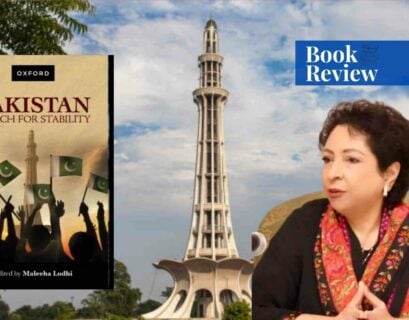Ms Brilliant Windy Khairunnisa is pursuing her Master's in International Relations and Diplomacy from Khazar University, Azerbaijan under the Nailakhanim scholarship.
Introduction
A nation with a resource or natural resource-based economy is one whose gross domestic product or GNP is significantly derived from natural resources. Resources contribute to tax revenue, income, as well as poverty reduction, which aid in economic growth. Natural resource-related industries generate employment and frequently form the backbone of impoverished towns’ economies. Nevertheless, environmental quality will deteriorate as growth rates rise in contrast to the expenses that are normally paid by others; the clean-up costs of emissions from dealing with municipal garbage are rather substantial.
In addition to the distinction between developed and developing nations, there are countries with relatively high GDP levels that cannot yet be classified as superpowers, owing to their inability to influence other countries. In this instance, these countries have abundant natural resources, allowing them to fulfill the requirements of their citizens without relying on other countries.
However, due to these countries’ reliance on natural resources, it can be projected that when these natural resources run out, the countries’ GDP would collapse and people’s requirements will not be met. Indonesia is without a doubt the wealthiest country in Southeast Asia in terms of natural resources including oil, coal, natural gas, minerals, forest products, and agriculture, yet the availability and reliance on resources vary considerably across the country.
Over the last few decades, the Indonesian economy has seen rapid development, and in recent years, this growth has been accompanied by lower production volatility and relatively steady inflation. On the other hand, there is Kuwait, which is regarded as a nation that too has an economic revenue based on natural resources. However, without collaboration on institutional development with other nations or organisations, Indonesia and Kuwait cannot possibly handle state funds on their own.
Indonesia
The dynamic interaction between forms of economic growth and institutional development in Indonesia begins with the arrival of international oil firms in the region. On the other side, the developmental state has a tight institutional connection with the private sector corporations, banks, and trading enterprises that dominate the strategic sectors of the economy. This strong link stems from state policy which only enables large business conglomerates to flourish as a result of particular incentives offered by the state.
As a result, the private sector works closely with government regulations to provide subsidies and control. In the end, Indonesia’s adoption of European philosophy and practice produced scientific management, which has endured as a normative framework for implementing sustainable management in the growth of social and economic institutions.
Government policies, the abundance of natural resources in the nation, and its young and expanding labour force have all influenced Indonesia’s economic success. Over the past 50 years, Indonesia’s economy has been more industrialized and more open to commerce. How policy reform, shifting competitiveness, and global crude prices interact is measured through Indonesia’s export diversification patterns.
This trend can be attributed to a number of factors, including a second commodity boom that led to an increase in the real exchange rate and alleviated manufacturing’s competitiveness, a shift in agricultural policy toward emphasising rents over productivity, liberalisation, technological advancement in significant service sectors such as transportation, telecommunications, and business services, China’s rise and its impact on lowering the price of semi-skilled, as well as unskilled labour globally.
According to those facts, the major trends in institutional development in Indonesia are about agriculture in which the natural resources managed to be exported more than before by collaborating with local and international institutions to develop economic and social institutions.
Kuwait
There are two significant structural imbalances—heavy reliance on oil output and predominance of state ownership—that define the Kuwaiti economy. Over the years, Kuwait has tried to put into practice a two-pronged development plan that diversifies the nation’s economic foundation away from the oil industry and fosters private sector growth.
Kuwait Fund For Arab Economic Development (KFAED) is the Middle East’s first institution to take an active part in development efforts while making some concessions to developing countries. In this case, the researcher determined that Kuwait could develop its social and economic institutions by increasing its investments and expanding its relations with other nations, allowing it to gain more alliances, increase its income, and save its future when natural resources become scarce due to the effects of globalisation.
Kuwait’s new trends involve concentrating on the economic environment and making wise judgments for success as a resource-dependent nation. These fall under the heading of implementation of planning, performance in the future, historical trends of company progress, functional coverage, dependence on analytical techniques, and accessing the planning for the assistance of staff to develop institutional development.
Nearly all nations, including Indonesia and Kuwait, have made the internet market and long-distance communication their key trends in order to increase their GDP despite relying on their natural resources. However, it is possible to evaluate climate alteration as a factor in a decline in natural resource output, necessitating a large number of income reserves for these nations, one of which is achieved through bilateral or multilateral ties between nations.
Conclusion
In light of this evidence, it is crystal clear that most resource-dependent countries develop their social economic institutions by widening their relations with both local and international institutions to make an export interaction of their natural resources until they could gain more GDP and meet the requirements of the people for instances of other resource-dependent nations.
Indonesia and Kuwait are increasingly focusing on the development of online trade due to the numerous advantages it offers, such as the simplicity of collaboration, increased output, as well as growing natural resource reserves.
If you want to submit your articles, research papers, and book reviews, please check the Submissions page.
The views and opinions expressed in this article/paper are the author’s own and do not necessarily reflect the editorial position of Paradigm Shift.



















